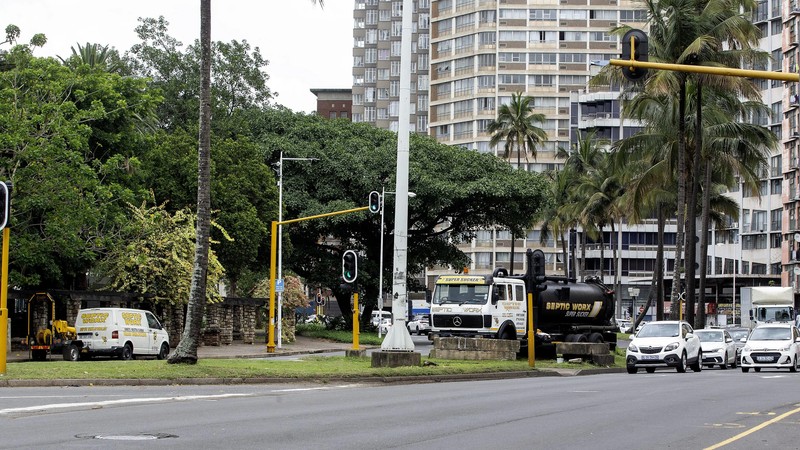Traffic is moving smoothly after a year-long sewage infrastructure maintenance work on a 3.5km pipeline that was completed on Margaret Mncadi Avenue, formerly Victoria Embankment in Durban.
The eThekwini Municipality said that maintenance work entailed desalting sand and other foreign particles blocking the sewage system and manholes.
The municipality stated that the repair was crucial as foreign materials choked the system, causing blockages and spills into Lavender Creek in the harbour, which had outraged the yachting community and environmentalists.
It stated that it was intensifying its inspections of fat traps in restaurants and shops in the Durban CBD to prevent sewer pipeline blockages.
The issue of blocked drains was brought up after a query by eThekwini Councillor Sharmaine Sewshanker, in October’s council meeting, particularly on why the project took more than the four months than it was planned for.
Sewshanker said closing one of the road lanes affected traffic on the busy thoroughfare, leaving motorists frustrated, exacerbated by one of the lanes being used for trucks entering the harbour.
In response to Sewshanker, the municipality did not reveal financial implications, although the completion had been extended by 10 months.
The municipality emphasised it was not a contract but an operational requiremen and that the timelines were determined as per the road closure agreement and constant overflows.
“The silt ingress is being managed proactively via ongoing winching of the sewer trunk main,” the municipality stated.
It mandates a minimum of four inspections per year for fat traps installed in local shops, restaurants, and businesses.
In cases of non-compliance, poor hygiene, lacking registrations, or repeated transgressions, the inspector must implement monthly inspections. These inspections will continue until compliance is both established and consistently maintained.
“These inspections should cover structural hygiene, food handling practices, waste management, including fats/oils if applicable. If non-compliance is found, e.g., fat dumping, missing traps, the inspection frequency is moved to monthly, and notices are issued requiring immediate remedial actions,” the municipality said.
Sewshanker was concerned about action being taken by authorities against these businesses that do not comply with the installation of fat traps and the dumping of waste fat and oil into drains.
According to the municipality, proper records are kept, and if there was a failure to comply, it was escalated to legal action. Notices serve as part of the enforcement chain, leading to closure, issuing a Section 56, or legal proceedings.
The municipality said reviews are done on new food-preparation premises applying for a business licence on Margaret Mncadi Road, and the relevant department issues a certificate of acceptability to the Business Licensing Unit, confirming health compliance or noting outstanding conditions.
The business licence is conditionally issued, subject to meeting the health conditions.
The municipality states that the desilting process continues until the system reaches full capacity. However, consumer misuse and abuse are reportedly hindering the efficiency of winching, slowing down the pace of desilting.
In addition, daily inspections of the pump stations are being carried out by the municipality.
